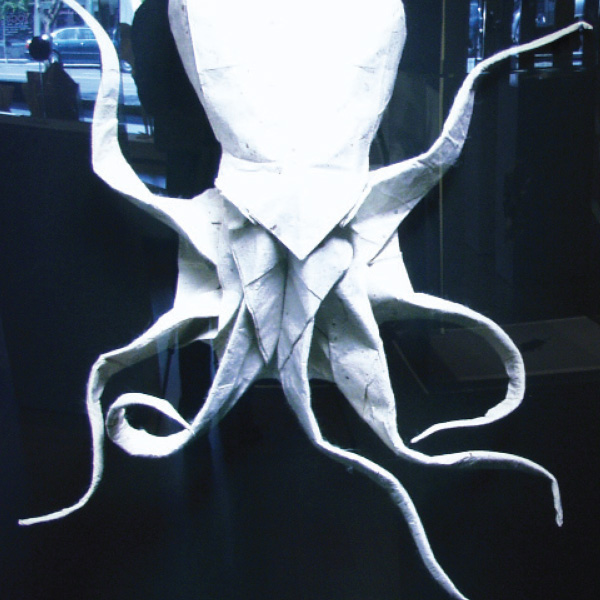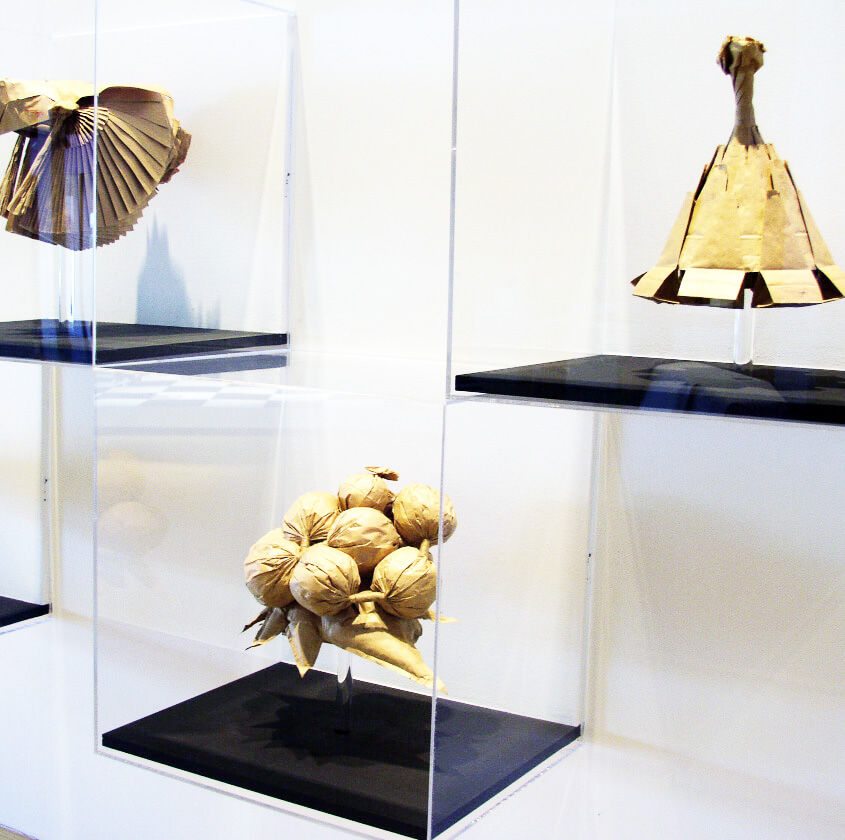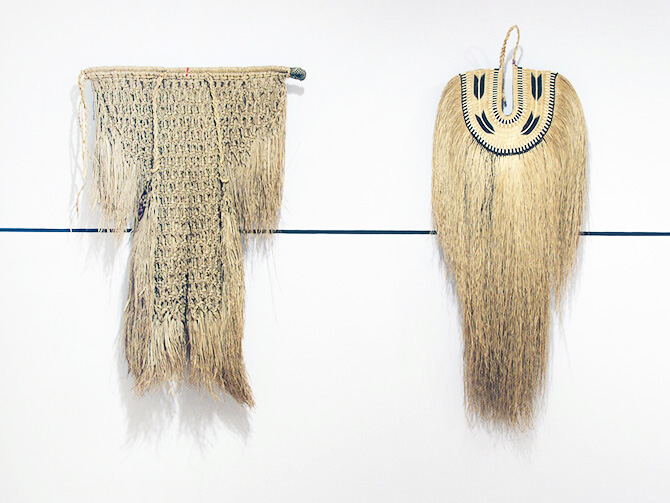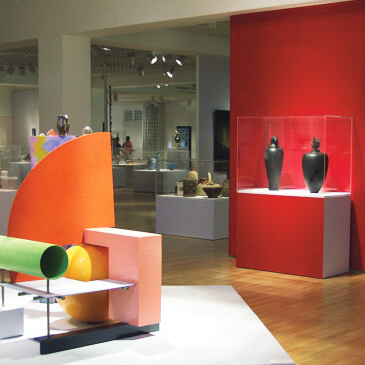EXHIBITION DESIGN
Roche’s projects deeply consider the public experience and the fluid interplay of architecture, art and environment.
“It's always about making the space, the architecture and the art one,” she notes.
featured work
MINGEI MUSEUM
PAPER TRANSFORMED
BEAUTY OF USE
CRAFT IN AMERICA
VIEWING STONES
MINGEI MUSEUM
Serving as the Director of Exhibition Design, Roche Studio curated and designed major exhibitions, including the museum’s Thirty Year Retrospective, named “Top Ten Art Events of 2007.”
Featured in the San Diego Union Tribune

The 'beauty' of the commonplace
Mingei exhibit makes great use of space to reconcile differences and similarities' among everyday objects.

'I love to deal with light, space and people'
“The challenge is to make inanimate objects animate,” says Bonnie Roche, the director of exhibitions at the Mingei International Museum.
PAPER TRANSFORMED
ORIGAMI: THE ART OF PAPER FOLDING
CROWNING GLORY: PAPER BAGS BY MOSES
“Paper Transformed” expresses two extremes of paper transformation into works of art: Origami, an ever-evolving global tradition of intricately folding one piece of paper into limitless forms: Hats by Moses, one man’s unique vision expressed through one type of paper medium.











THE BEAUTY OF USE: MINGEI INTERNATIONAL MUSEUM AT 30
Mingei, a word invented by a Japanese scholar, Yanagi, combines min (people) with gei (art) to describe the broad concept of the functional object as art.
The organizing elements were architectural space and theatrical lighting.











CRAFT IN AMERICA: EXPANDING TRADITIONS
This three-part PBS television series, book and a survey exhibition of 200 years of craft in America, is traveling to 7 museums. Mingei is the third museum to mount this show. Small examples of each basic material — ceramic, wood, glass, paper — from Mingei's permanent collection are displayed to introduce the show.








AMERICAN VIEWING STONES: NATURAL ART IN AN ASIAN TRADITION
This is a tradition of found art, dating back one to two thousand years in China and about 400 years in Japan. The show was designed to create a world of veiled intimacy, allowing for both flow and solitude, a reference to the environment in which scholars lived with viewing stones in their everyday built environment.



